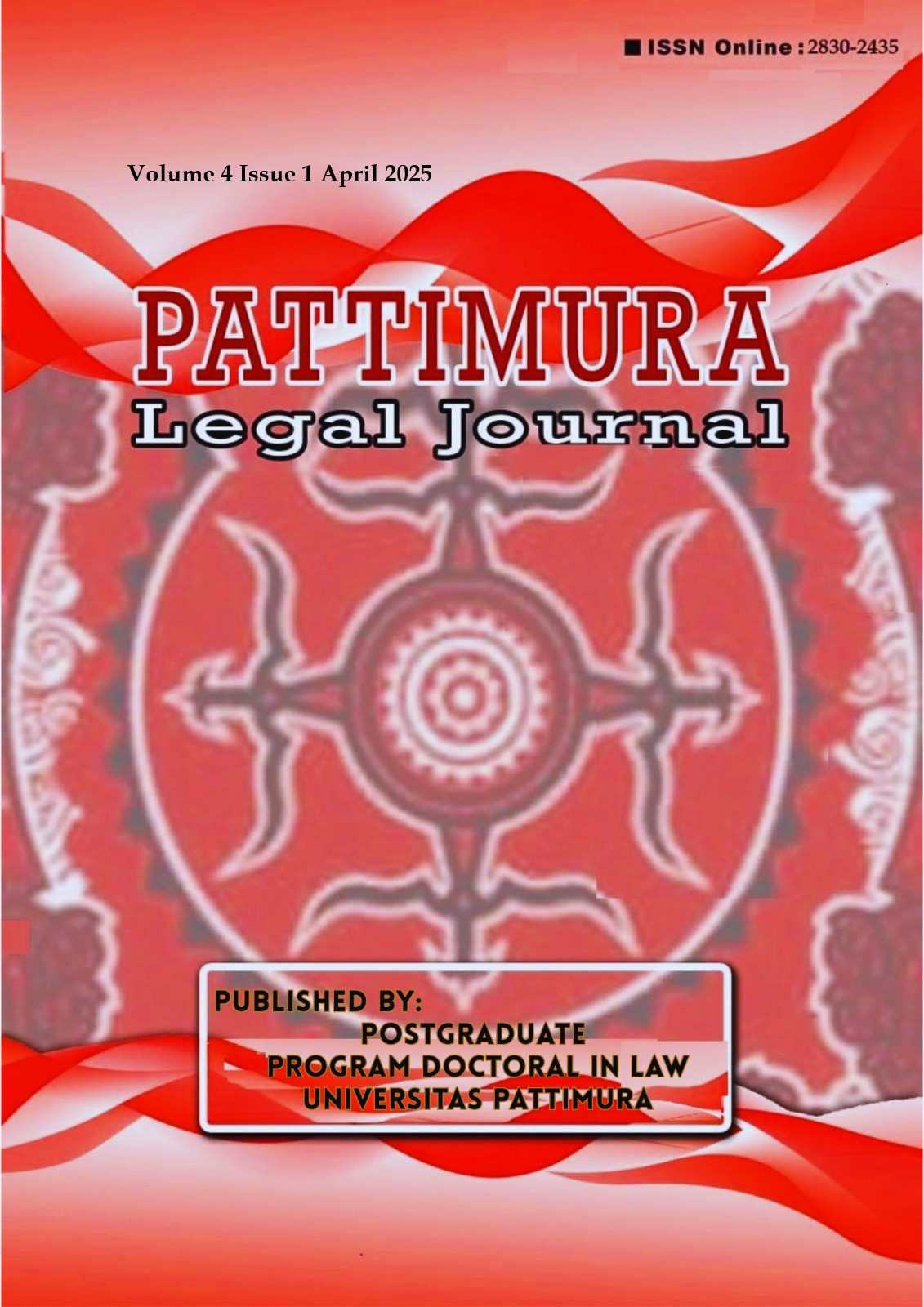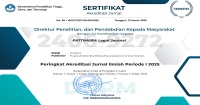Local Government Supervision of the Circulation of Tuak (Alcoholic) Beverages in the Context of Implementing Public Order, Peace and Community Protection
Abstract
Introduction: The circulation of alcoholic beverages in Tembilahan District is a social problem that requires strict supervision from the local government. Based on the Regional Regulation of Indragiri Hilir Regency Number 3 of 2023, supervision of the circulation of alcoholic beverages is the responsibility of the Pamong Praja Police Unit to maintain public order, peace, and community protection.
Purposes of the Research: The purpose of this study is to find out the Regional Government's supervision of the circulation of alcoholic beverages in Tembilahan District, to find out the inhibiting factors in the supervision, and the efforts made by the Regional Government in this regard.
Methods of the Research: The type of research carried out is sociological legal research conducted in the Regional Government of Indragiri Hilir Regency. The data sources used are primary data and secondary data. The data collection techniques used were interviews, and literature reviews. The data is then analyzed which is qualitative and then concluded using a deductive thinking method.
Results Main Findings of the Research: The result of this study is that the supervision of the circulation of alcoholic beverages by the Pamong Praja Police Unit is still not optimal, as seen from the low intensity of raids and the lack of strict action against violators. The main inhibiting factors in this supervision include limited facilities and infrastructure, information leakage, and lack of community participation. To overcome this obstacle, the local government plans to increase monitoring facilities and facilities and the use of technology such as Closed-Circuit Television in areas prone to alcohol trafficking. The establishment of a Rapid Reaction Unit involving the Pamong Praja Police Unit, the police, and the community is expected to strengthen supervision and increase the effectiveness of local law enforcement.
Downloads
References
Ali, Zainuddin. Metode Penelitian Hukum. Jakarta: Jakarta: Sinar Grafika, 2016.
Firdaus, Emilda. “Sinkronisasi Materi Muatan Undang-Undang Nomor 32 Tahun 2004 Tentang Pemerintahan Daerah Dengan UUD 1945 Pasca Amandemen Dalam Pemilihan Kepala Daerah.” Jurnal Konstitusi 3, no. 2 (2010): 80.
Hairi, Prianter Jaya, Novianto Murti Hantoro, Marfuatul Latifah, Denico Doly, Haris Yonatan Parmahan Sibuea, and Shanti Dwi Kartika. Politik Hukum Pengaturan Minuman Beralkohol Di Indonesia. Edited by Ronny Sautma Hotma Bako. Jakarta & Malang: Pusat Penelitian Badan Keahlian DPR RI & Intelegensia Intrans Publishing, 2019.
Huda, Ni’matul. Hukum Pemerintahan Daerah. Bandung: Nusa Media, 2009.
Izhar. “Mengidentifikasi Cara Berpikir Deduktif Dan Induktif Dalam Teks Bacaan Melalui Pengetahuan Koteks Dan Referensi Pragmatik.” Jurnal Pesona 2, no. 1 (2016): 63–73. https://ejournal.umpri.ac.id/index.php/pesona/article/view/141.
Prayudi. Hukum Administrasi Negara. Jakarta: Ghalia Indonesia, 1981.
Riskiyani, Shanti, Miftahul Jannah, and Arsyad Rahman. “Aspek Sosial Budaya Pada Konsumsi Minuman Beralkohol (Tuak) Di Kabupaten Toraja Utara.” Media Kesehatan Masyarakat Indonesia 11, no. 2 (2015): 76–85. https://doi.org/10.30597/mkmi.v11i2.520.
S, St. Aisyah, Hasyimuddin, and Samsinar. “Uji Alkohol Pada Fermentasi Tuak.” Teknosains: Media Informasi Sains Dan Teknologi 12, no. 2 (2018): 148–56. https://doi.org/10.24252/teknosains.v12i2.7594.
Tardi, Gregory. “The Democracy Manifesto.” Journal of Parliamentary and Political Law November (2014).
Copyright (c) 2025 Muhamad Haiqal Hakiki, Emilda Firdaus, Separen Separen (Author)

This work is licensed under a Creative Commons Attribution-NonCommercial 4.0 International License.
Authors who publish their manuscripts in this Journal agree to the following conditions:
- The copyright in each article belongs to the author, as well as the right to patent.
- Authors are able to enter into separate, additional contractual arrangements for the non-exclusive distribution of the journal's published version of the work (e.g., post it to an institutional repository or publish it in a book), with an acknowledgment of its initial publication in this journal.
- Authors are permitted and encouraged to post their work online (e.g., in institutional repositories or on their website) prior to and during the submission process, as it can lead to productive exchanges, as well as earlier and greater citation of published work.
- Authors have the right to self-archiving of the article (Author Self-Archiving Policy)






















